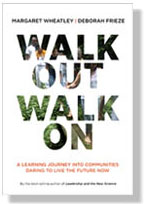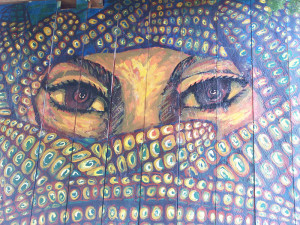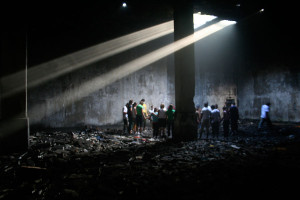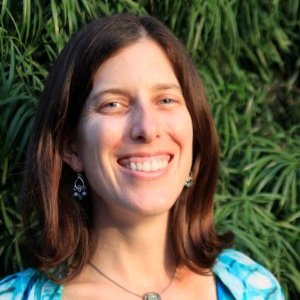This blog post series is a facilitated group study of the book Walk Out, Walk On by Margaret Wheatley and Deboarh Frieze. Read more about the series here, and for an excerpt of the book, click here.
This week we began our learning journey, led by authors Meg Wheatley and Deborah Frieze into the first two communities who show us shining examples of how people are walking out of old systems and ways of being, and into new models of community health and resilience.
First, the invitation: we were invited to begin our Learning Journey by examining our own beliefs about “how change happens and what becomes possible when we fully engage our communities” (xvi). In each chapter, the Walk Outs Who Walk On will teach us how they have done this in their own communities – walked out of old modes of thinking, and walked on to create connections and new possibilities.
Then the authors ask us:
What issues consistently get your attention? Which ones make you angry? Which ones make you excited?
Have you glimpsed or experienced a future that inspires and motivates you?
Who do you want to be for this world? What is the contribution you hope to make?
Are you willing to risk being changed by this journey? (p. 14).
Take a moment to consider your own answers to these questions.
Our first stop is at Unitierra, Mexico, located in the land of Zapatismo, the “philosophy of resistance that is rooted in the indigenous heritage of place” (p. 22). Unitierra breaks the mold of traditional educational by creating spaces where learners can discover what they want and need to know. The authors explain that the students of this university “have no teachers, they follow no curriculum, and they receive no degrees,” noting “it is hard to explain something that is daily rewritten” (25). Rather than writing papers or doing presentations, students create dry composting toilets, bicycle-powered water pumps (bicibombas), urban gardens, and other experiments in living in harmony with the Earth.
Some of the key concepts that emerge from our journey here, in the language of Unitierra, include:
- Co-motion (as opposed to promotion): spreading ideas through contagion rather than pushing people in a particular direction (p. 26)
- Trans-local learning (in contrast to “global” learning): what happens when people carry an idea from one place to another and set it loose in a new local environment, allowing it to emerge into something entirely different (p. 29)
- Scaling across (in contrast to scaling up – patenting, standardizing, and franchising): releasing knowledge, practices, and resources, and allowing them to circulate freely so that others may adapt them to their local environment (p. 34)
At the end of the chapter, the authors ask us to reflect:
When have you been given someone else’s plans or practices and told to just implement them? How did you respond?
Perhaps in contrast, can you think of a time when you have been given an idea from another person or place, and allowed it to emerge into something entirely different?
Do you know of small efforts that grew large not through replication, but by inspiring each other to keep inventing and learning?
“…when we stop creating enemies, we extinguish the need for weapons.”
– Kaka Wear Jecupe, indigenous teacher in Brazil
Our next stop is at the Elos Institute in Brazil, where we learn how to play at changing the world and are invited to examine our assumptions about community development and curing urban blight. The dominant world view that understands the universe and people as machines perpetuates the idea that community problems need to be solved by outside experts and resources. The Elos Institute process, in contrast, purports that the solutions to the community’s needs, and the resources needed to create the solutions, exist within the community itself.
A key concept of this chapter is upcycling (in contrast to recycling), which is the practice of inventing beautiful, and surprising products out of waste materials
The chapter delves into different types of leadership and power found within the dominant worldview and the Elos Institute. Command-and-control leadership assumes that people are machines, and as such can be motivated and managed by external force and authority. The leadership model that Elos thrives on is based on community leadership, that through working together as play, community members create the space to allows people to step forward and contribute their own talents. The authors ask us to reflect:
Have you had personal experience with command-and-control leadership? How did it impact your motivation, relationships, effectiveness?
In the poem that closes the chapter, Meg Wheatley writes something that many of us can probably relate to:
“Cave paintings from thousands of years ago depict our ancestors dancing, not sitting in meetings.”
May this book inspire us to find ways to play and dance our way to a better world!
We invite you to share your answers to the questions above, key takeaways from the reading, favorite quotes, and additional reflections in the comments section below!












[…] By Stephanie Knox Cubbon […]
As I read these living stories of bicycle powered blenders and wading through mountains of trash that would be transformed into a playground, I found myself feeling that we are so terribly
fortunate. While I fully realize that there are many in this country who are living without electricity and clean water and feel that something desperately needs to be done about homelessness; when I read about the ingenuity behind these projects in Mexico and Brazil I am humbled.
We “should” be working collectively for the common good of the world. Building play grounds, building shelter…
One thing that struck me was that there is free health care and medication for all. As we struggle in this Country with our health care exchanges which or the most part are very expensive. “Health Care for All” does not exist here. We are poor in so many ways and the people of Mexico and Brazil of much to teach us.
The chapter on Mexico is inspiring especially the concept of trans-local learning.so revolutionary and in contrast to what our current culture and society teaches us. and yet so simple and intuitive when we think about it.
Hello Everybody. It is obvious that building networks is so important for making these initiatives happen, especially when like-minded people are scattered across landscapes.
I am working to build food sovereignty in a city in the Netherlands and there is distance between people and much organizing that is needed to coordinate people to get together to start projects. Because we live in systems where land is so privitized and uses are regulated with red tape, I find it a challenge to find the space and the time to dance, innovate, build, etc.
The stories in Mexico and Brazil if you notice are cases where people are tied to the land through tradition and culture or through hardship. I think that greater ecological awareness and healing the Earth and our land brings people together. That’s why I think that living in eco-villages/ intentional communities, restorating and harvesting the land are good options for people in our societies. That is rebuilding community and a good option to “walk on” in my view.
Hi everyone,
It’s wonderful to read your comments and insights about what stood out in this chapter for you!
Likewise, there was so much that jumped out at me. The Unitierra example was very inspiring, and has me thinking about how we could perhaps take this example with a slightly different angle – instead of leaving it completely open, could we create a Unitierra for peace, nonviolence and justice? For the roadmap? For the new story? Still creating a space where learners would decide what they need to know, where everyone would teach each other, but with a common intention (which, I suppose, the original Unitierra really already had this).
I loved the concepts of co-motion, translocal learning and scaling across – so contrary to the way things are typically done, and the way we think about things like economic development, or even sharing ideas.
I also deeply loved the integration of play in the Elos Institute. As Anna noted in her comment, we often don’t have time for play – or perhaps we don’t make time. I loved that quote at the end about our ancestors not painting pictures of themselves having meetings. They probably did have meetings (council) – but I bet those meetings involved dance, too!
Above all, it’s incredibly inspiring to read these examples of how people are really implementing Gandhi’s constructive program in their communities, around the world. In the spirit of translocalism and scaling across, there’s much we can learn from them, and I look forward to seeing what happens after we percolate with these ideas some more.
“What kind of world am I contributing to creating?” (Frieze, p. 24). The answer to this question lies deep within oneself and the ability to deconstruct the myriad lenses that we view our reality. Each layer is informed by our lived experiences, our personal principles, and our believed assumptions. When deconstructing these layers, we might engage in a self-discovery that is painful or enlightening. Practicing self-compassion is essential when answering such an emotionally charged question.
As I read the stories about the Unitierra schools in Mexico practicing critical pedagogy I was immediately drawn to how these schools highlighted the concept, “trans-local learning” (Wheatley & Frieze, p. 29). I have recently reentered the classroom not as a facilitator of learning, but as a recipient of learning. In my capacity as a student, I have been honored with an opportunity to co-develop curricula for an all girl school located in Kenya. As I have been undergoing this process I have been desperately seeking research on best practices and methods to develop curricula across borders that remains culturally and pedagogically relevant to the context. The idea of trans-local learning is essential in informing this process and highlights some of the principles I have employed thus far which include: creating alliances with educators in Kenya, entering the conversation in the spirit of collective learning and collaboration, and letting go of preconceived notions to allow for what is meant to emerge. I am particularly fond of the philosophy that an idea can be carried to a new space with the intent to “emerge into something entirely different” (Frieze, p.29).
In honoring this idea of trans-local learning, I have been able to conceptualize my approach to this cross-cultural curriculum development project in a new way. I have let go of the need to capture best practices and instead have been able to find comfort in the idea that the process will be guided in a relevant and culturally appropriate manner if I rely on the indigenous knowledge and local wisdom that inherently lies within the teachers in Kenya.